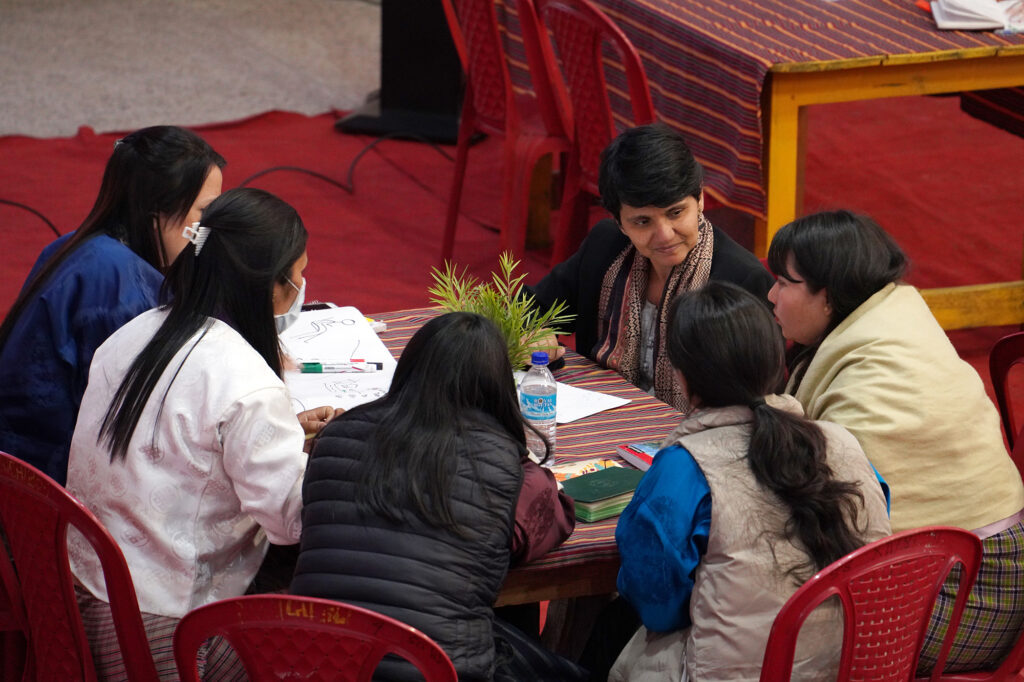May 8, 2023

Deputy Chief Pema Chhogyel of the Ministry of Education and Skills Development closed an orientation in Thimphu on a somber, yet hopeful note. A visually impaired man himself, Pema spoke at length about the challenges and discriminations he has encountered throughout his education in Bhutan. He recounted his story of losing sight at the age of three, and how, if he had the right support, early intervention and an inclusive education, he might have retained a majority of his vision. While distributing certificates to the educators who took part in the inclusive education workshop, Pema emphasized the need for collaboration and shared responsibility in order to achieve a truly inclusive early childcare.
PEMA’S STORY IS NOT UNIQUE. Many children with disabilities in Bhutan face similar obstacles and early detection and intervention are crucial to helping them reach their potential. The Bhutan Foundation recognizes this and has focused its special education program on providing teachers and schools with the resources they need to help children with disabilities early on. Early Childhood Care and Development Centers (ECCD) are the first step in this process, as they are the first form of learning institutions children enter. These centers serve as an important platform for identifying non-visible disabilities and encouraging interventions that can benefit the child.
A training on inclusive childhood care and development in February was one such example of the capacity building work the Bhutan Foundation and its partners are spearheading. At orientations and workshops, the focus is to educate teachers on effective strategies for meeting the needs of children with disabilities. Oftentimes, this includes adapting classrooms to increase accessibility, as well as making necessary modifications to school infrastructures and facilities.
The effects of disabilities reach far beyond an individual and can be felt in all aspects of society. To this end, the Foundation is working with civil society organizations to promote and develop functional programs, skills development, and entrepreneurship for older children with disabilities. The Foundation also partners with the Phensem Parent Support Group to empower parents to advocate for their children and create awareness of the issues they face. Through these collective efforts, families are better equipped to access essential healthcare, education, and other services.
The largest barrier in effectively supporting children with disabilities remains a gap between policy and implementation. To bridge this divide, the Foundation and its partners have convened disability conferences to facilitate dialogue between service providers, policy makers and people with disabilities. At the most recent National Disability Conference, stakeholders issued a call for urgent action to strengthen coordination and collaboration across sectors, review the current model of SEN schools to ensure that inclusive education goes beyond enrollment, bolster teacher and ECCD facilitators’ capacity, expand health, referral, and intervention services to rural communities, and create support systems for families and caregivers of persons with disabilities.